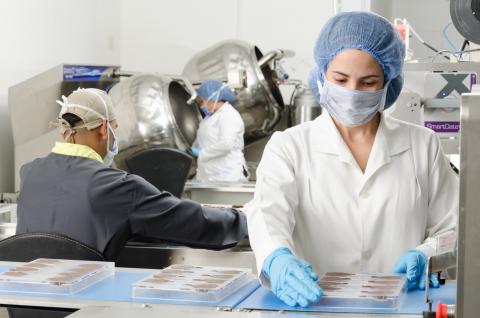Online Technical Training Blog

Adjusting to New Food Safety Regulations in the 21st Century
The opportunities afforded by the continuous advancements of technology is nothing short of remarkable. Unfortunately, in many industries, the inclusion of technology in areas it is not traditionally used is more often than not seen as an encroachment on employment rather than a boon.
True, the argument that technology is taking away much-needed jobs from workers is continuously being made (particularly in sectors where manual labour is both costly and inefficient), but an equally persuasive counter argument can also be made. Specifically, that technology is creating jobs at an exponential rate – and its influence is being felt in areas well beyond the medical, military, and scientific communities.
Food Safety Regulations and What They Can Do For Job Growth
In these days of globally spanning media outlets, it’s difficult to go a week without hearing about one recall or another. Aside from those pertaining to faulty automotive systems, the type of recall that causes the most alarm is the food recall. In spite of a manufacturer’s best efforts, food recalls are regularly executed because of an increased likelihood that a contaminated food product has found its way onto store shelves. While these occurrences of contamination can be immensely dangerous – not to mention potentially costly – they do invariably help to expose weaknesses in the production and packaging of consumer goods.
As a result, companies are investing in new technology that will not only help their products meet the increasingly strict guidelines put forth by legislators, but also perform infinitely better in identifying foreign contaminants. Just a few short decades ago, companies relied on the error-prone human eye to identify defective or substandard consumables as they travelled along the production line. These days, giant food conglomerates employ equipment with sensors that can detect contaminants on the microbial level; and it is well worth the investment. One needs to think only of the impact to sales or the cost of legal fees and out of court settlements that a contaminated food product can have on a company to understand why.
Food Safety Requires a Skilled Workforce to Meet Guidelines
While there is a demand for those with the ability to design the next generation of automated food manufacturing systems, there is undoubtedly a similar demand for those trained to perform regular, preventative maintenance on these systems. After all, should the technology responsible for the safe production of food fail (something that technology at one point or another is wont to do) there is more at stake than the financial sting of a recall and a tarnished reputation; the health of the public may be compromised as a result of even the smallest performance issue.
With newer food safety standards and regulations, companies must employ professionally trained technicians who understand how each component and subsystem works together to ensure the proper functioning of the system.
These emerging supportive roles are just a few examples of how a stricter set of food guidelines is creating jobs.
Safety: It’s Not Just About the Food
When it comes to the sale of food, much consideration has to be given concerning the manufacturing of food safe packaging. Remember phthalates? Phthalates are plasticizers used to make plastic pliable (like the plastic that is used to encase your food). Phthalates are easily absorbed into the body and have been linked to a host of health problems. Many phthalates are now banned, but it just goes to show how big a role safe packaging has on the health of the buying public.
Transportation is another emerging issue in food safety. With food being transported from one end of the globe to another, adequate systems must be implemented to prevent any kind of bacterial and fungal growth while en route.
The Need is There, Time to Update Your Skillset
The more one thinks about it the easier it is to see the impact food safety has on the demand for technically trained professionals. That’s why it’s more important than ever to keep up your training to help you meet that demand. At George Brown College, there are a number of online technology programs available to choose from that will allow you to learn valuable and marketable skills at your own pace.


